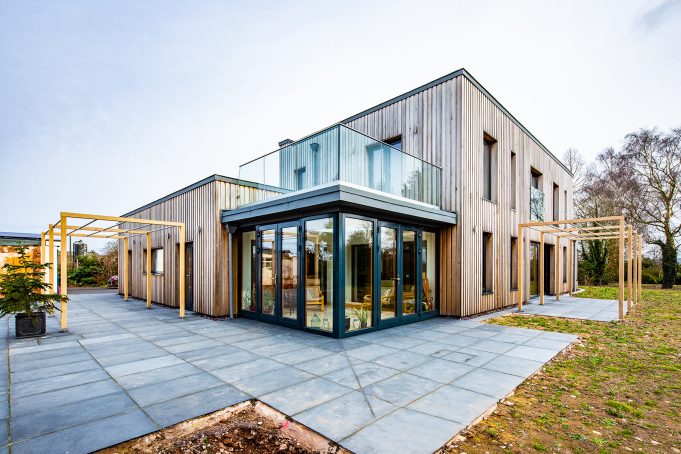In today’s world, a growing number of people are recognizing the value of energy-efficient homes. The concept of creating living spaces that use less energy while maximizing comfort and sustainability has gained significant traction. Understanding the energy-efficient homes benefits not only helps homeowners save on utility bills but also plays a crucial role in preserving the environment. Whether you are a homeowner or a real estate developer, the shift towards energy efficiency is pivotal for a sustainable future.

The Environmental Benefits of Energy-Efficient Homes
One of the primary benefits of energy-efficient homes is their positive impact on the environment. Reducing energy consumption leads to lower greenhouse gas emissions, which in turn, helps in combating climate change. By using advanced insulation techniques and sustainable construction materials, energy-efficient homes are designed to minimize their carbon footprint.
Reducing Energy Waste
Energy-efficient homes are equipped to minimize energy waste. Through features like high-performance windows, improved insulation, and energy-efficient appliances, these homes ensure that energy is used effectively. This not only results in reduced energy bills but also decreases the overall demand for energy resources.
Sustainable Building Practices
Incorporating sustainable building practices into the construction of homes is a key advantage. Materials that are environmentally friendly, such as recycled steel or sustainably harvested wood, further augment the environmental benefits of energy-efficient homes. These practice advocate for sustainability and ensure that construction impacts are minimized.
Economic Advantages for Homeowners
Investing in an energy-efficient home brings about significant economic advantages. From reducing utility bills to increasing property value, homeowners have much to gain.
Lower Utility Bills
One of the most immediate advantages homeowners notice is a reduction in utility bills. Because energy-efficient homes use significantly less energy for heating, cooling, and lighting, the cost saved on energy bills can be substantial over time.
Increased Home Value
Another economic benefit is the increased market value of energy-efficient homes. With the growing demand for sustainable living, more buyers are willing to pay a premium for homes that offer energy savings and lower operating costs. Energy efficiency can also be a strong selling point in competitive real estate markets.
Health and Comfort Improvements
Beyond environmental and economic benefits, energy-efficient homes contribute to better indoor living conditions.
Enhanced Indoor Air Quality
Homes designed with energy efficiency in mind often enjoy better indoor air quality. Proper ventilation systems and the use of non-toxic building materials help reduce indoor pollution. This is particularly beneficial for families with children, elderly members, or those with respiratory issues.
Improved Thermal Comfort
Thermal comfort is another benefit of energy-efficient homes. Advanced insulation and high-quality windows help maintain a consistent indoor temperature, providing comfort regardless of external weather conditions. This makes living spaces more enjoyable year-round.
Technological Innovations in Energy Efficiency
Technological advancements play a critical role in the development of energy-efficient homes.
Smart Home Devices
The integration of smart home devices is revolutionizing the way energy is used. Smart thermostats, lighting, and appliances allow for precise control and monitoring of energy usage, leading to further efficiencies and cost savings.
Renewable Energy Systems
Many energy-efficient homes are now integrating renewable energy systems, such as solar panels. This not only reduces reliance on conventional power sources but also further decreases energy costs. By producing energy on-site, homeowners can often generate enough to cover their usage, contributing to energy independence.
Government Incentives and Support
Governments around the world recognize the importance of transitioning to energy-efficient living and offer various incentives.
Tax Credits and Rebates
Homeowners can often benefit from tax credits and rebates when they choose to upgrade their homes for energy efficiency. These fiscal incentives reduce the initial cost of investment and make the transition more affordable for many.
Policy and Regulations
Many regions implement policies and regulations that promote energy efficiency in building practices. For instance, autonomous bodies like USGBC offer certification for sustainable building, which has gained prominence among developers.
Boosting Demand for Green Real Estate
The demand for energy-efficient homes is on the rise. Understanding this demand is crucial for both homeowners and real estate developers.
Growing Consumer Awareness
Today’s consumers are more aware of environmental issues than ever before. This increased awareness is driving demand for green real estate, as buyers look for ways to reduce their ecological impact.
Real Estate Market Trends
The real estate market is responding to this demand by offering more sustainably built homes. As developers continue to adapt by implementing planning tips, energy-efficient homes are becoming more readily available, making it easier for buyers to find exactly what they are looking for.
Conclusion
The energy-efficient homes benefits are immense and varied, encompassing environmental, economic, and health improvements. As demand rises for these homes, understanding their full range of benefits becomes essential for homeowners and developers alike. By adopting practices that promote energy efficiency, individuals and communities can play a significant role in advancing sustainability and securing a brighter future for generations to come.

FAQs
Why are energy-efficient homes important?
Energy-efficient homes are important because they help reduce energy consumption, lower utility bills, and minimize environmental impact, making them vital for sustainability efforts.
How do energy-efficient homes improve indoor air quality?
Such homes improve indoor air quality through better ventilation systems and the use of non-toxic materials, which reduce pollutants and enhance overall air purity.
Are there any financial benefits to owning an energy-efficient home?
Yes, owners of energy-efficient homes enjoy reduced utility bills, increased property value, and may qualify for tax credits and rebates, making them a financially prudent choice.
This article contains affiliate links. We may earn a commission at no extra cost to you.



